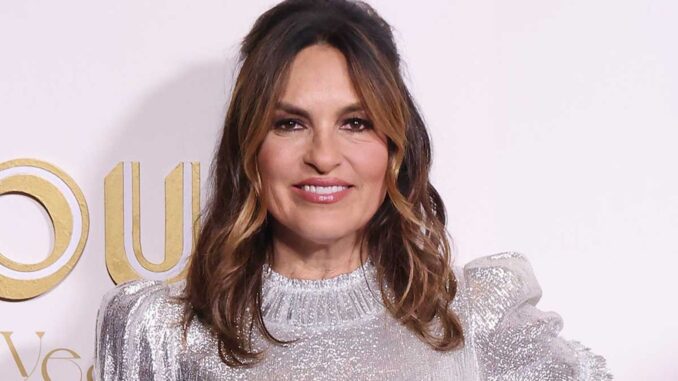
The Long Road Home: Hope and Hesitation in the Benson & Stabler Narrative
For over two decades, Olivia Benson and Elliot Stabler have been the lodestars of NBC’s “Law & Order: Special Victims Unit,” their bond a complex tapestry woven from shared trauma, unwavering loyalty, and an undeniable undercurrent of romantic tension. Fans have witnessed their partnership blossom, fray, and ultimately, endure despite Stabler’s sudden departure. Now, with his return to the franchise in “Law & Order: Organized Crime,” the question looms larger than ever: Will Benson and Stabler finally become official? Mariska Hargitay’s recent remarks, hinting at a potential future while acknowledging the inherent challenges, offer a tantalizing glimpse into the possibilities and anxieties surrounding this iconic relationship.
The draw of Benson and Stabler lies not merely in romantic potential, but in the foundation of their connection. They were partners, confidantes, and surrogate family in a world saturated with brutality. They witnessed the worst of humanity together, shielding each other from the darkness while simultaneously recognizing and supporting each other’s inherent strengths. This shared understanding, forged in the crucible of SVU, transcended the professional and created a bond of unparalleled intimacy. The unspoken glances, the intuitive understanding in the interrogation room, the raw emotion that surfaced when one was threatened – these moments fueled the “Benson and Stabler” fandom and cemented their place in television history.
Stabler’s sudden departure left a gaping hole in both Benson’s life and the narrative landscape. His leaving without a proper goodbye, driven by trauma and a lack of communication, felt like a betrayal, leaving Benson vulnerable and questioning their entire history. The subsequent years saw Benson rise through the ranks, evolving into a seasoned Sergeant and eventually Captain, fiercely protective of her squad and a beacon of hope for survivors. Yet, the shadow of Stabler lingered, a reminder of a past that was both cherished and painful.
His return in “Organized Crime” reignited the dormant spark, forcing both characters to confront the unspoken words and unresolved feelings that had festered for a decade. Hargitay’s comments, acknowledging the complexities of reuniting such deeply intertwined characters, are particularly insightful. She emphasizes the necessity of navigating the established histories, the individual growth both characters have undergone, and the potential impact of a romantic relationship on their established dynamic. The challenge lies in honoring the past while forging a believable and satisfying future.
The very essence of their relationship is built on a foundation of duty and responsibility. They are protectors, driven by a desire to help the vulnerable. How would a romantic entanglement affect their ability to compartmentalize the horrors they face daily? Could a relationship compromise their objectivity or create undue pressure in life-or-death situations? Hargitay’s caution suggests a careful exploration of these very real concerns, promising a storyline that is not simply about romantic wish fulfillment, but about the nuanced realities of adult relationships built on trauma and professional dedication.
Moreover, a satisfying resolution requires more than just a romantic declaration. It demands that both characters confront their past wounds, acknowledge their individual growth, and communicate openly and honestly. Stabler must answer for his sudden departure and demonstrate his understanding of the pain he inflicted on Benson. Benson, in turn, must allow herself to be vulnerable and open to the possibility of forgiveness and reconnection. It’s a journey of healing, acceptance, and the courage to redefine a relationship that has already defied easy categorization.
Ultimately, the question of whether Benson and Stabler will become “official” remains open. But Hargitay’s willingness to address the complexities and potential pitfalls suggests a commitment to a thoughtful and nuanced exploration of their relationship. The “long road home” is paved with both hope and hesitation, and the journey itself promises to be as compelling and emotionally resonant as the destination. For fans who have invested in this dynamic duo for over two decades, the possibility of a finally realized connection, built on a foundation of respect, understanding, and enduring love, is a powerful and irresistible draw. The true reward lies not simply in seeing them together, but in witnessing their individual growth and the enduring strength of a bond that has weathered the storms of tragedy, loss, and time. The future remains uncertain, but the hope for a fulfilling and authentic resolution for Benson and Stabler remains a powerful, enduring flame.
